-
 +3 +1
+3 +1Never-Before-Seen Method For Making The Color Blue Found in Stingray Spots
Bluespotted ribbontail rays create blue in a unique way, researchers report in a new study.
-
 +29 +1
+29 +1Researchers Solve Mystery of The Sea Creature That Evolved Eyes All Over Its Shell
Small, shelled, and unassuming, chitons have eyes unlike any other creature in the animal kingdom.
-
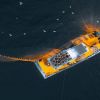 +30 +1
+30 +1Governments spend US$22 billion a year helping the fishing industry empty our oceans. This injustice must end
Governments all over the world are propping up overfishing. Now scientists have penned an open letter calling on trade ministers to implement stricter regulations against harmful fisheries subsidies.
-
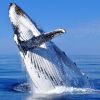 +24 +1
+24 +1Scientists had a 20-minute "conversation" with a humpback whale named Twain
In an unprecedented encounter, a research team successfully engaged in a "conversation" with a humpback whale named Twain.
-
 +41 +1
+41 +1Can a map of the ocean floor be crowdsourced?
Many maps of the ocean floor are decades old. The race is on to properly chart them by 2030 – and crowdsourcing could be part of the answer.
-
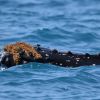 +54 +1
+54 +1Expert Explains Why Whales Often Wear Hats Made of Seaweed
If a whale comes across a patch of kelp, it may well start playing with it. This practice may also be useful to rid whales of unwanted passengers.
-
 +31 +1
+31 +1Did the Romans hunt WHALES?
Ancient bones at a fish processing factory reveal the civilisation may have caused the beasts to go extinct in the Mediterranean 2,000 years ago
-
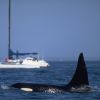 +23 +1
+23 +1Orca Rams Into Yacht Near Scotland, Suggesting the Behavior May Be Spreading
The incident occurred roughly 2,000 miles away from the recent encounters near Spain and Portugal
-
 +27 +1
+27 +1Porphyrios
Porphyrios (Greek: Πορφύριος) was a large whale that harassed and sank ships in the waters near Constantinople in the sixth century.
-
 +16 +1
+16 +1Dolphin moms use baby talk to call to their young, recordings show
You know instantly when someone is speaking to an infant or small child. It turns out that dolphin mothers also use a kind of high-pitched baby talk.
-
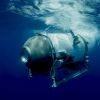 +16 +1
+16 +1'Catastrophic threat': OceanGate was reportedly warned Titanic sub didn’t meet industry standards 5 years ago
A trade group warned OceanGate Expeditions in 2018 its Titan submersible—which has been missing for more than two days since it dove to view the wreck of the Titanic with several passengers aboard—did not meet industry standards and could result in negative outcomes “from minor to catastrophic,” the New York Times reported Tuesday.
-
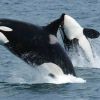 +27 +1
+27 +1These 4 Mind-Blowing Facts Show Just How Smart Orcas Really Are
In and around the Strait of Gibraltar that divides Spain from Morocco, orcas are behaving in odd and aggressive ways.
-
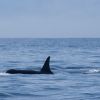 +28 +1
+28 +1Orcas have sunk 3 boats in Europe and appear to be teaching others to do the same. But why?
Scientists think a traumatized orca initiated the assault on boats after a "critical moment of agony" and that the behavior is spreading among the population through social learning.
-
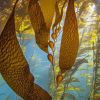 +15 +1
+15 +1A Hidden Underwater Resource Is Worth Way More Than Expected, Study Reveals
Researchers have just calculated the value society gets from a common but hidden underwater resource, and found it's way higher than we ever expected.
-
 +4 +1
+4 +1Scientists Discover Leak in the Bottom of the Ocean
It may be more likely than ever that the next mega-earthquake is going to happen in the PNW — and a hole in the bottom of the sea may provide clues.
-
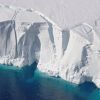 +16 +1
+16 +1Antarctic ocean currents heading for collapse- report
Rapidly melting Antarctic ice is causing a dramatic slowdown in deep ocean currents and could have a disastrous effect on the climate, a new report warns. The deep-water flows which drive ocean currents could decline by 40% by 2050, a team of Australian scientists says. The currents carry vital heat, oxygen, carbon and nutrients around the globe.
-
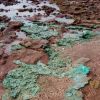 +15 +1
+15 +1'Horrifying' Plastic Rocks Emerge in Remote Island Paradise
There are few places on Earth as isolated as Trindade island, a volcanic outcrop a three- to four-day boat trip off the coast of Brazil.
-
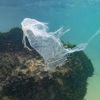 +21 +1
+21 +1Plastic pollution in oceans has reached 'unprecedented' levels in 15 years
Plastic pollution in the world's oceans has reached "unprecedented levels" over the past 15 years, a new study has found, calling for a legally binding international treaty to stop the harmful waste.
-
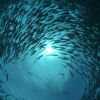 +18 +1
+18 +1The invisible ocean crisis of toxic chemicals used in plastics
Around 8 million tons of plastics enter the oceans every year. Beyond the visible litter lurks a growing invisible crisis of toxic chemicals, and studies show that these chemicals are spreading into every nook and cranny of our oceans, food and bodies.
-
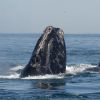 +18 +1
+18 +1U.S. refuses calls for immediate protection of North Atlantic right whales
The U.S. government has denied two petitions to immediately protect critically endangered North Atlantic right whales during the species’ calving season, raising concerns that this population of whales will continue to decline without intervention. There are currently about 340 of these whales left, making them one of the most threatened cetaceans in the world.
Submit a link
Start a discussion




















